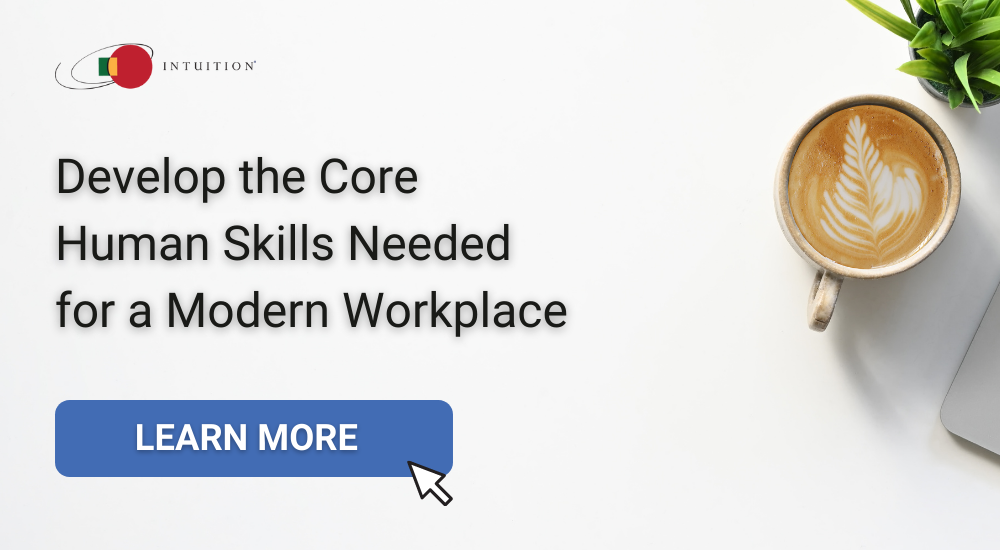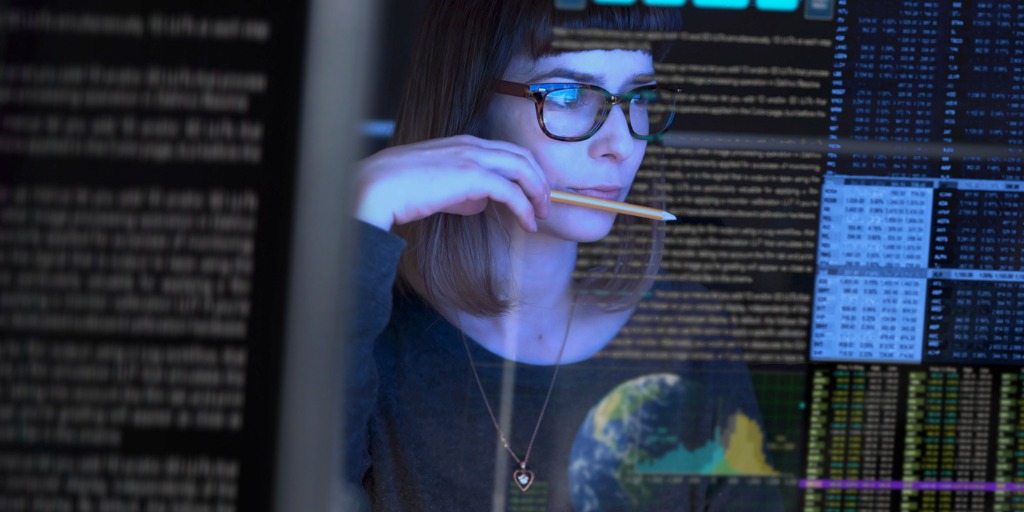Why Mindset Matters: A Creative Approach to Human Skill Building
What’s on the ‘hot list’ of skills for today’s employees? What do we need to prioritize in our efforts to equip our people to not simply survive but thrive in the months ahead? Are human skills coming to the fore? These were some of the questions we explored in a recent chat with David Wilson of Fosway Research.
And while the answers may not be crystal clear yet, patterns and needs are beginning to emerge. One thing is clear: uncertainty, complexity, and perhaps even debate around the central issues that underpin our work lives will continue to be a feature of the modern workplace world.

Change is possible
Everyone is a modern employee now, simply because everyone has endured what’s occurred over the last 20 months. For many of us, the where, when, and how of work has shifted and continues to shift.
And so inevitably and in a sense with little resistance, or at least with willing resignation, everyone shifted with it. People changed and crucially, recognized that change wasn’t perhaps as difficult as anticipated.
Related article: Three Skills Your Employees Need in 2022
In the same way, organizations instantaneously recognized the urgency to shift. Every L&D department rapidly pivoted with a realization that new skills needed to be embraced and could be embraced. This became a widespread trope.
More significantly, many of the human skills now appearing in our shopping list, like creative thinking, problem solving, resilience, agility all once seen as binary – in other words, you either had them or didn’t – are now seen as desirable but more importantly learnable.
This was particularly true of how we thought about many of the more ‘creative’ soft skills. The last 20 months have proved to all that many of these skills can and indeed have been learned rapidly over this period.

The experiment is everywhere and ongoing
Flexibility can work for all (individuals and organizations). Many companies are trialing a hybrid work model whether that’s 3:2 (three days in the office, two at home) or 2:3 (two days in the office).
This new experiment of what work will look like, has shunted new practices into our workplaces, many of them long awaited. While most companies previously offered some type of option to work from home, many were reluctant to formalize it. Now, the pandemic has pushed this one through, without too much opposition.
With any luck, this mindset will endure and many organizations will continue to try out and explore new options, augmented with a more flexible, ‘can do ’ mindset.
Related article: What Impact has the Pandemic had on Corporate Learning?
This exploration and experimentation is happening everywhere in different ways. Different experiments are being explored in different organizations across the globe right now, as we see organizations form new structures, teams, and ways of working that match all their people’s needs – workers, employees, and clients.
Many organizations may have been pleasantly surprised by some of the changes brought by the shift in work practices, many noticing that productivity wasn’t as impacted as adversely as might have been expected. For many organizations, however, it was operation in a survive mode rather than a thrive one. We need to continue to seek out new ways, new work practices or processes to help us move beyond the base line of survival to optimized, more efficient, high performance-oriented work.

Challenges
To move beyond this base level skill functioning, organizations must look to augment and develop human skills in new and creative ways, with a careful eye on how we do it and what works. Digital learning and digital first has been almost universally embraced but this also means we have to be careful of digital fatigue, while being sensitive to the variability of experience for differing employee cohorts.
Digital fatigue comes as no surprise given the omnipresence of digital in our lives from our work team meetings to book club get togethers after work. At times, we may need to sense-check our rationale for technology choices. So many meetings now take place on video conferencing platforms with cameras always on and yet for certain meetings, a camera-off policy may elicit greater concentration and minimize fatigue.

Different cohorts of workers have experienced the pandemic with different effects. Some employees found working from home alienating, lonely, and difficult. For many of them creating work relevant connections and networks was almost impossible. Keeping our people happy, connected and well must be a priority in the months ahead and organizations will seek varied ways of bringing people together.
The so called ‘Great Resignation’ is testament to a deep reflection by workers everywhere on what role work plays in our lives alongside an exploration of how we might tweak it for better life work balance.
Meeting the challenges of all the above is a big ask. And so organizations and individuals must be creative and agile, taking care of ourselves, our colleagues and our work, communicating effectively in a new digital landscape, tuning in empathetically to each other while problem solving for a changing work culture and a business future. Many of the skills a modern employee will need are emerging right now, but many others will emerge over time. As we figure out the what we need, we need to keep a weather eye on the how too, upgrading our learning modalities with better engagement techniques and a boosted expertise and arsenal of new tools and devices. All our ways of working and learning will have to switch up a gear to service the new hybrid workplace modality

Conclusion
Twenty months on from what’s happened, and we are reforming many things at this moment, reforming ourselves with new skills and capabilities, reforming our work with new innovations, processes and tools, while remaking our ways of working with experimentation across our hybrid workforce and workplace. And it is a delicate balancing act as we look after ourselves as individuals while seeking continued success for our businesses, but we owe it to all to do it right.
It is a time for deep and positive reflection on all things, our lives, our work, our future, a time to question and acknowledge and reflect on how we work together as humans in this rapidly changing world.


